Archive
30 November 2018
Probing quantum physics on a macroscopic scale
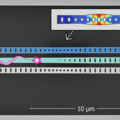
Why does quantum mechanics work so well for microscopic objects, yet macroscopic objects are described by ‘classical physics’? This question has bothered physicists since the development of quantum theory more than a 100 years ago. Researchers of Delft University of Technology and the University of Vienna have now devised a macroscopic system that exhibits entanglement between mechanical phonons and optical photons. They tested the entanglement using a Bell test, one of the most convincing and important tests to show a system behaves non-classically.
29 November 2018
Various prizes for AS students
It’s raining prizes in November. This month, students of study programmes of the Faculty of Applied Sciences received various awards. An overview.
29 November 2018
ERC Consolidator grant for Chirlmin Joo and Pouyan Boukany
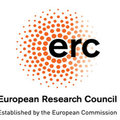
This year, two ERC Consolidator grants have been awarded to TU Delft researchers. Both these researchers work at the Faculty of Applied Sciences. Dr. Pouyan Boukany from the Department of Chemical Engineering wants to learn when, how and why metastatic tumour cells detach form a tumour. Dr. Chirlmin Joo from the Department of Bionanoscience wants to develop a new gene editing tool based on a system found in a single-celled organism.
23 November 2018
Permit design and Environmental Impact Assessment
The permit design and the Environmental Impact Assessment for a cold source next to the core of the research reactor are open for public consultation from 22 November 2018 until 2 January 2019.
23 November 2018
Anton Akhmerov joins The Young Academy
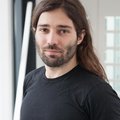
The Royal Netherlands Academy of Arts and Sciences (KNAW) has selected Dr. Anton Akhmerov from the department of Quantum Nanoscience as a new member of the Young Academy. He is one of ten new members, all of whom have a broad interest in science practice, science policy and science communication.
21 November 2018
Hyun Youk selected as EMBO Young Investigator
The European Molecular Biology Organization (EMBO) has selected Hyun Youk and 25 other life science researchers within their first four years as group leaders to become EMBO Young Investigators. Youk will join an active network of 102 current and 314 past Young Investigators and will receive support from EMBO during the foundation of their first independent laboratory.
15 November 2018
Marie-Eve Aubin-Tam en Monique van der Veen awarded NWO Athena Prize 2018
Dr Marie-Eve Aubin-Tam and Dr Monique van der Veen, both of the faculty of Applied Sciences at the TU Delft, will receive the NWO Athena Prize 2018 at the CHAINS chemistry conference on 4 December.
08 November 2018
AS to coordinate two large new public private research programmes
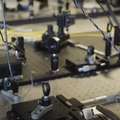
NWO (The Netherlands Organisation for Scientific Research) has announced the new research programmes that will be part of its ‘Perspective for Top Sectors' funding programme. Six public-private programmes will receive a total of 28 million euros. This amount consists of NWO funding (19 million), plus investments by the companies and organisations involved (9 million). Applied Sciences is involved in three programmes and will act as the coordinator of two of these programmes.
29 October 2018
EU awards ten million euro to European Quantum Internet Alliance to speed up development of Quantum Internet

Today, the European Commission announced that its Quantum Flagship Programme will contribute 10 million euro to the development of a blueprint for a future quantum internet.
29 October 2018
Delft student team develops gene doping detection method and wins prizes in worldwide Synthetic Biology competition
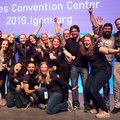
TU Delft students have devised and developed a method for detecting gene doping. This method, called ADOPE (Advanced Detection of Performance Enhancement) has the potential to combat the abuse of gene therapy in sport. Through this project, the students in the iGEM team aim to highlight how important it is that synthetic biology is used safely. They presented their idea at last week’s International Genetically Engineered Machine (iGEM) competition in Boston, winning prizes for their new application and product design.